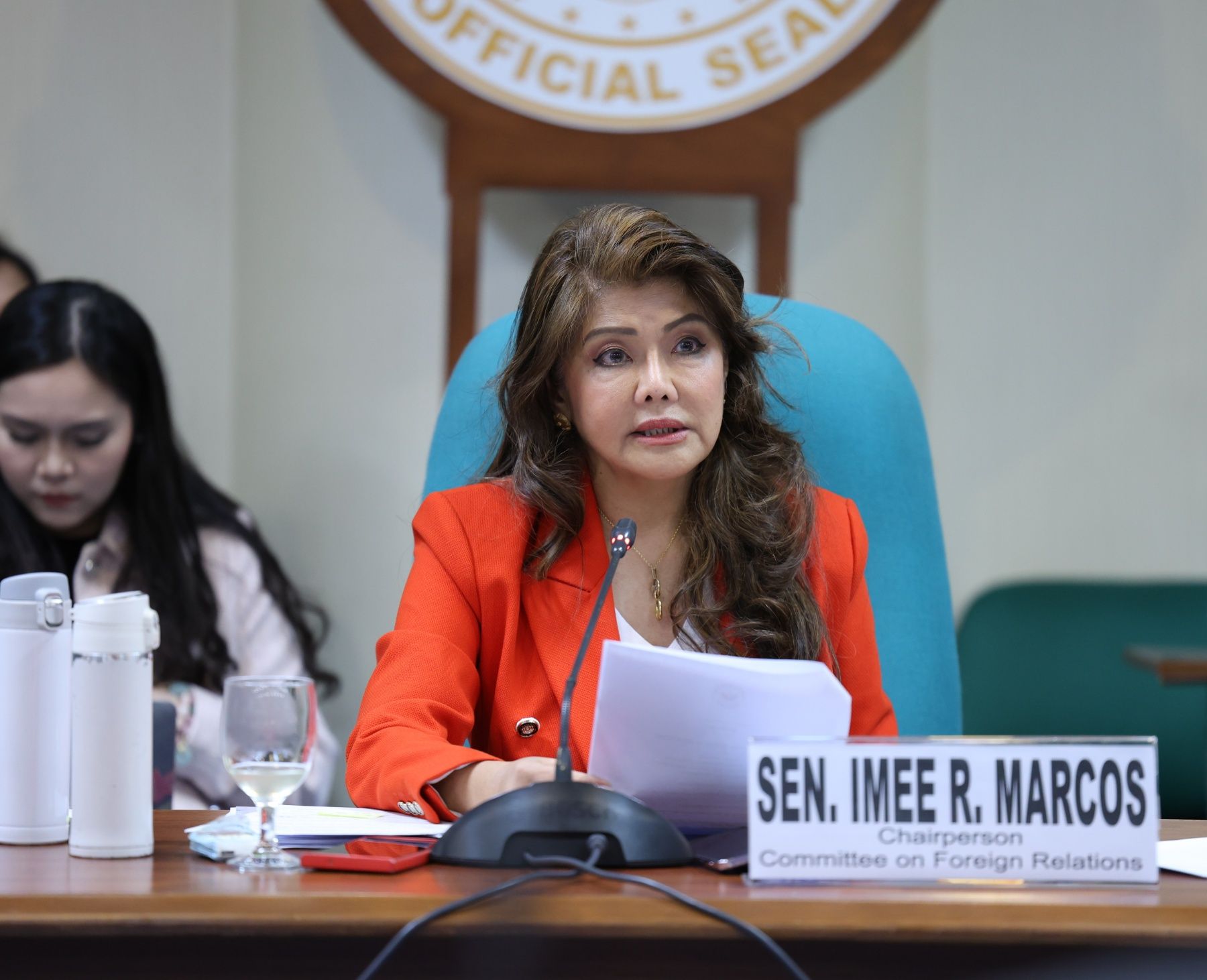Still a lot to unravel in ex-President Duterte's arrest, Imee Marcos says
By Dhel Nazario
Blurry, teeming with gaps, and full of loose ends.
This is what's apparent for Senator Imee Marcos when it comes to the arrest of former President Rodrigo Duterte and his eventual turnover to the International Criminal Court (ICC) as she disclosed the preliminary findings of the Senate Committee on Foreign Relations in its ongoing investigation.

"Maraming ikinukubli, maraming pinagtatakpan, maraming hindi totoo at marami tayong dapat siyasatin (There are many things being hidden, many things being covered up, many lies, and there is a lot we need to investigate),” Marcos said in a press conference on Thursday, March 27.
After the first hearing that sought to flesh out details in the procedures that led to Duterte's arrest, it remains unclear who should answer for what supporters of the former Philippine leader call an "injustice" that was allegedly committed against him, the presidential sister said.
Based on the initial findings of the Senate foreign relations panel’s investigation, Marcos cited the lack of a Red Notice, the Philippine Government's cooperation with the ICC to arrest Duterte, and the “glaring violations" of Duterte's rights.
The findings were included in the seven-page document which she released to reporters on Thursday.
During the first hearing, the lack of a Red Notice was established when Philippine Center on Transnational Crime (PCTC) executive director Anthony Alcantara stated that what was issued against the former president was a "wanted person diffusion."
Alcantara had explained that a diffusion is "a request for international police cooperation that is coming from an entity or another member country that is directed to another member country."
He also mentioned how a diffusion bears the same weight as a Red Notice.
But Marcos said that even under the terms of the Diffusion Notice, the Philippines was not obligated to turn over Duterte to the ICC absent any request for extradition or surrender.
She cited the administration’s narrative based on a statement on November 13, 2024, by Executive Secretary Lucas Bersamin that they will be compelled to honor ICC’s request if Interpol transmits a red notice to Philippine authorities.
Also during the press briefing, Sen. Marcos presented a timeline that illustrated how her brother, President Marcos' stance on the ICC, changed throughout the years up to Duterte's arrest.
"Secretary Boying Remulla admitted that he (President Marcos) has indeed changed, and I asked when that change occurred, why it happened, and what exactly changed. He said that as we grow older, we all learn and our perspectives change—that's all he explained. But it is clear that there has been a change," she said in Filipino.
She added that she found the claim of the Department of Interior and Local Government Secretary Juanito Victor Remulla, Jr. that the supposed “group effort” was only based on rumors as "incredible".
"This attempt to cover up what was already aired on media indicates all the more that a comprehensive plan to arrest FPRRD was already in place even before March 11," she said.
She stated that the Philippine government had already decided to assist the ICC in apprehending Duterte, with preparations beginning well before March 11 — the date indicated in the ICC documents.
“Police units were mobilized as early as March 10. National Security Adviser Eduardo Año was already tracking Duterte’s movements, and executive officials had gone on record, saying the administration would cooperate with the ICC if the arrest request came through Interpol,” Marcos said.
Another thing she pointed out was that the Constitutional safeguards guaranteeing liberty and due process of law were not observed, stating that no warrant was issued by a Philippine court.
"The arrest did not fall within the exceptions to a warrant arrest," the report said.
Marcos also defended her panel’s decision to conduct a probe into the matter saying it is essential to determine whether the process was correct or not so that such issues will not be raised again.